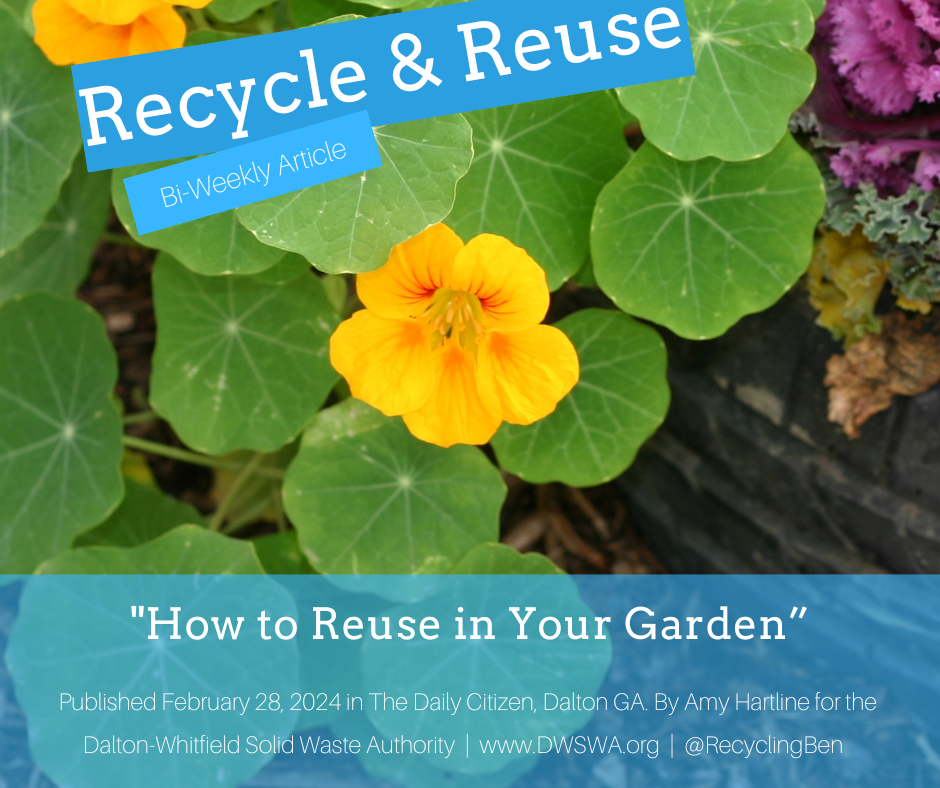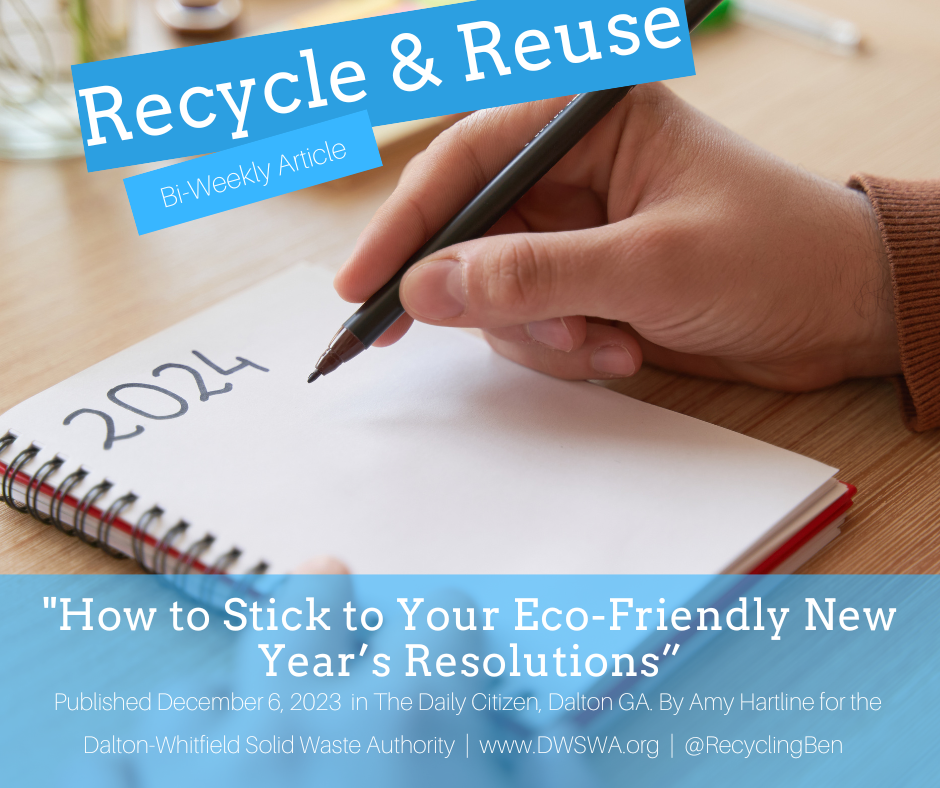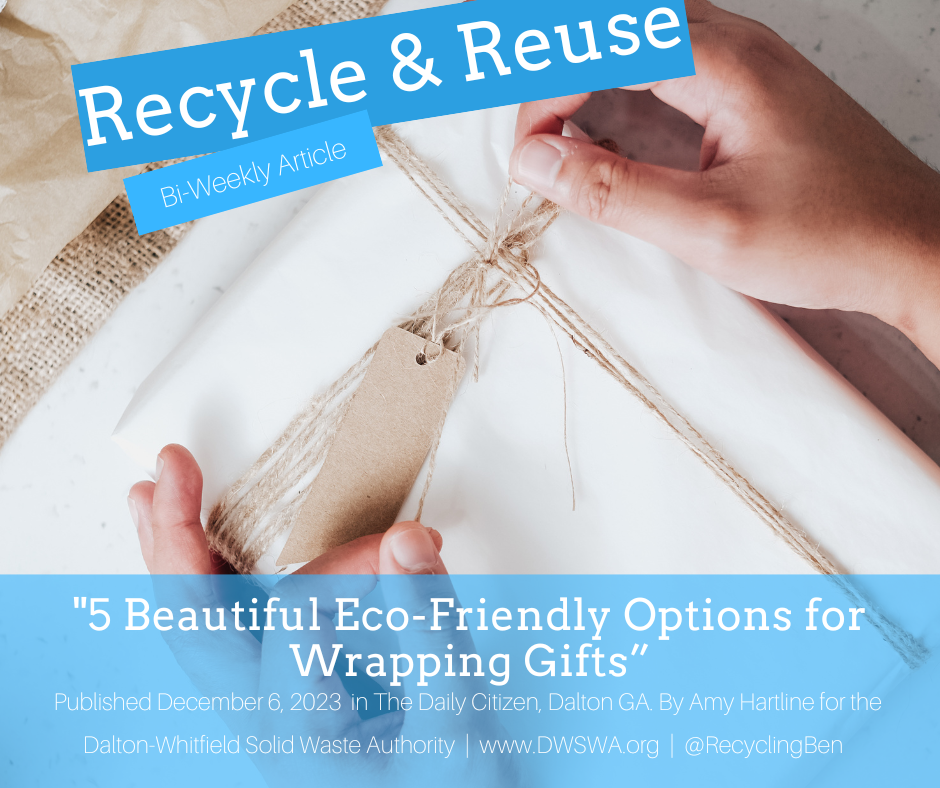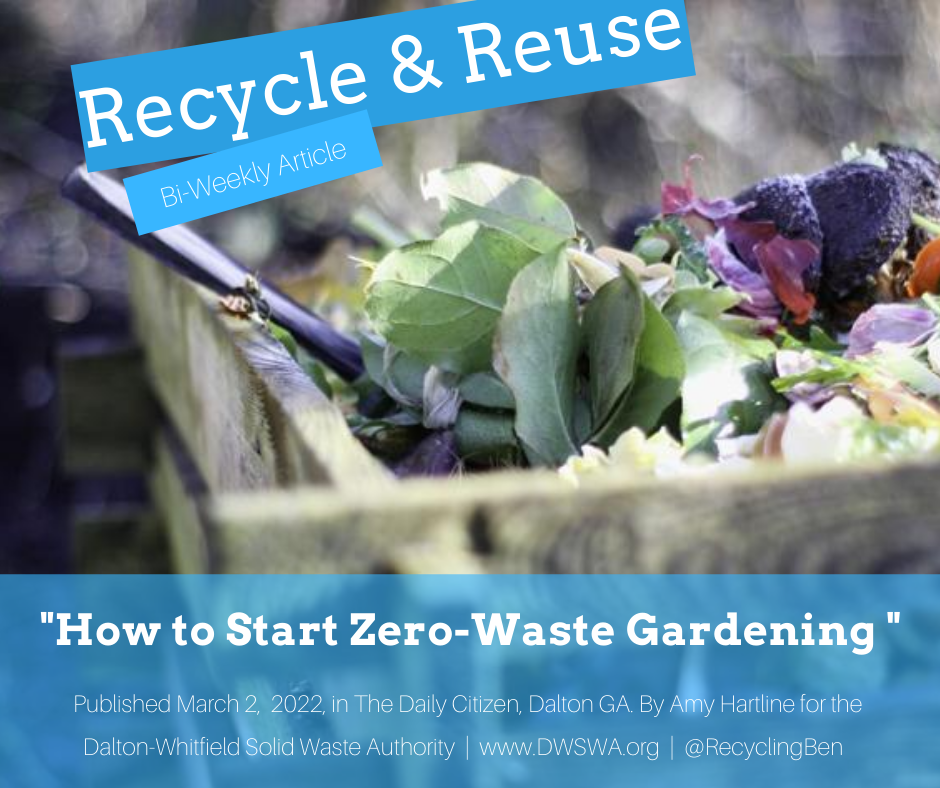How to start zero-waste gardening
/When we think of gardening we often think of beautiful flowers and green leaves, which feels very eco-friendly. Gardening can be incredible for the environment but only when it is done the right way. Done incorrectly, gardening can lead to unnecessary waste heading to the landfill. Planning ahead now for your spring garden can help you make sustainable choices to create a zero-waste garden.
Be conscious when purchasing your tools if you are new to gardening. If you can, see if you can find them second-hand. Put a call-out on Facebook. You never know what friend may be wanting to downsize their garden or who bought more than they can use.
You can also invest in some quality tools. Choosing durable tools made of materials like steel and fiberglass can help your tools see your garden through many years.
You can begin growing your plants based on what food scraps you have from your kitchen. Green onions are a great first kitchen scrap to grow from. Plant them root end down and keep in a sunny spot. Water regularly and you should see them growing back quickly in a couple of weeks.
Idaho potatoes can be cut into small chunks and then dried on a counter for a day or two. Afterward, plant them in a well-draining area and in a few months you should be able to dig up new potatoes. If your food doesn’t grow, throw those scraps in the compost and don’t be afraid to try again.
To start your seeds try saving eggshells for a few weeks and planting inside of them. This means you won’t have to use the black plastic seed starters, and when it is time to transplant your plants it is easier because you can plant them with the eggshell. Eggshells help moderate the acidity in soil because of their large amounts of calcium. If you don’t eat eggs, you can purchase biodegradable pots that the plant can then later sprout through once they are buried in the ground.
Now that your plants are buried, you need to label them so you can remember what they all are. There are a ton of eco-friendly options for labeling your plants instead of buying the plastic tags. You can purchase wooden stakes that can be mulched and biodegrade. You can take an afternoon and hand-paint rocks to go next to each different type of plant. You may be able to even come up with ideas of how to label them with items you plan to discard around the house.
To help deter weeds in gardens many people use weed barriers, many of which are not biodegradable. I recommend using natural weed barriers instead such as wood chips, wet newspapers or cardboard. These will create enough of a barrier on the soil to prevent many weeds without creating unnecessary waste.
The key to using newspaper is to have multiple layers to create a very thick barrier. For newspaper, aim for around 10 sheets or more.
For cardboard, the key is to place it and then plant. Spread the area where you want to plant with water and then break it with a spade.
If you would like to use wood chips, Whitfield County and Dalton residents can pick up free mulch at the Dalton-Whitfield Solid Waste Authority’s Old Dixie Convenience Center and Landfill at 4189 Old Dixie Highway.
Changing just a few gardening habits can make your garden, no matter how big or small, better both in the enjoyment you get and how healthy your community environment is. If you are just thinking about getting started, it is even better to start off this way to instill the eco-friendly habits early on.
If you are experienced, try changing out just one of these habits first and you may be surprised at how much you like the change.
































